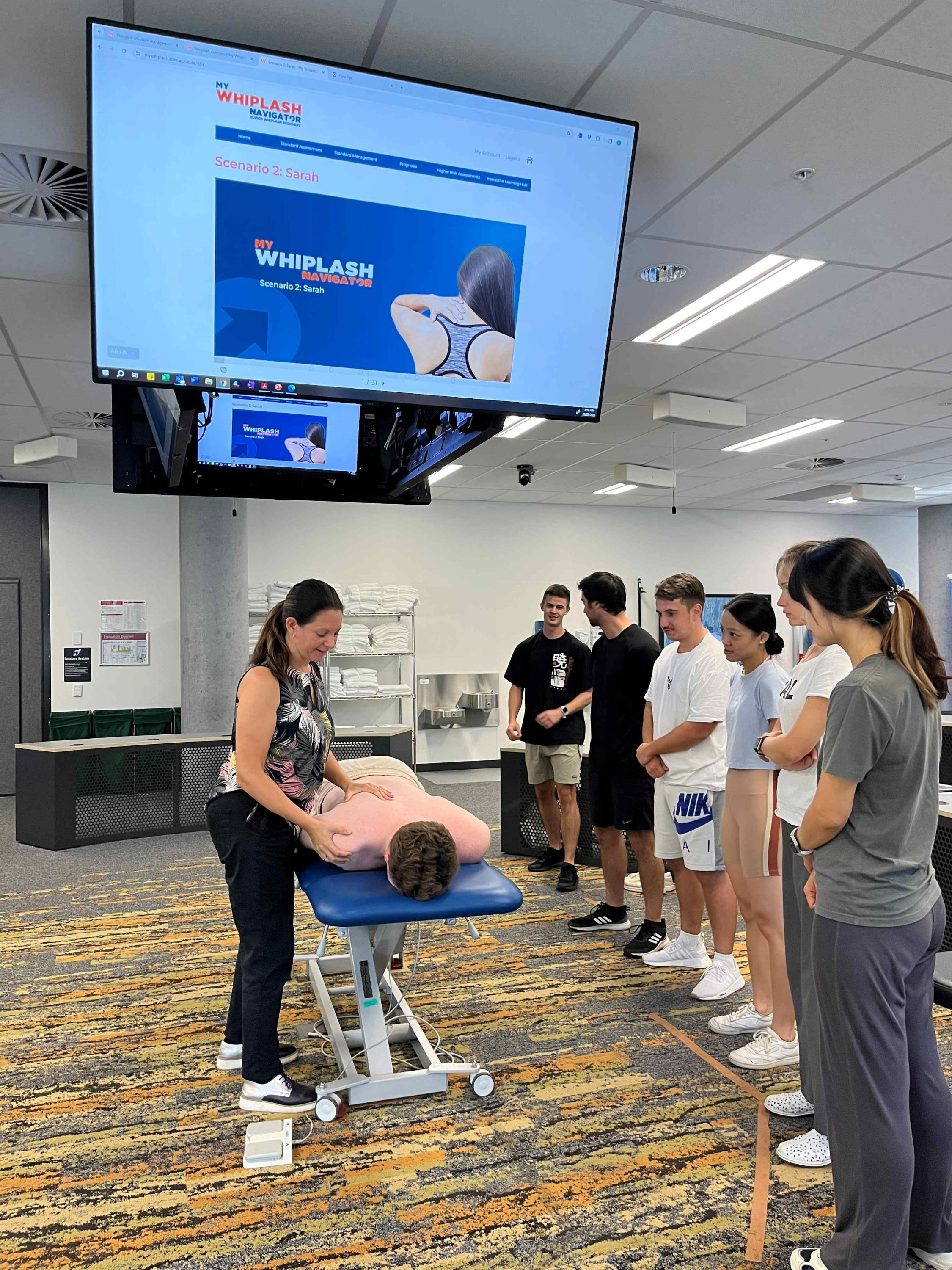R esearchers from The University of Queensland and The University of Sydney have developed an online training hub for clinicians treating people with whiplash.
esearchers from The University of Queensland and The University of Sydney have developed an online training hub for clinicians treating people with whiplash.
My Whiplash Navigator, a collaboration between UQ, The University of Sydney, Motor Accident Insurance Commission and State Insurance Regulatory Authority includes nine new training modules.
Professor Michele Sterling from UQ’s RECOVER Injury Research Centre said the new modules upskill physiotherapists with simple psychological strategies, in addition to exercise, to target physical and stress related symptoms.
“The modules are based on previous research that found psychological strategies combined with standard physiotherapy care delivered by physiotherapists, to be more effective in symptom improvement when compared to standard physiotherapy alone,” Professor Sterling said.
“Whiplash is the most common injury for over 2.6 million Australians involved in a non-catastrophic motor vehicle collision.
“Over 50 percent of people with whiplash develop chronic pain, disability, psychological distress, and long-term interference in daily life.
“For optimal treatment it is important for physiotherapists to understand how to help patients with psychological distress, however many lack the confidence and skills due to inadequate training in this area.
“The training modules address this gap.”
My Whiplash Navigator is an online resource for people with whiplash and health care professionals treating injured people with physiological symptoms including neck pain, stiffness and headaches; and psychological distress including stress, anxiety, depression, and sleep disturbance.

Professor Trudy Rebbeck from The University of Sydney said over 2000 clinicians managing an estimated 20,000 people with whiplash have accessed the website.
“We’ve had feedback that the information for people with whiplash was helpful in their recovery and the exercises were easy to understand,” Professor Rebbeck said.
“To develop the new modules, we consulted with our government partners and injured people to ensure the resources include key messages from clinical guidelines and help injured people recover.
“In addition to physiotherapists understanding how to manage pain and distress, we’ve developed modules that assist primary health care clinicians to assess and manage people from simple to more complex presentations.
“The modules include interactive case studies providing real-time feedback.
“These resources are also embedded within student university and professional post-graduate education.”
Media contacts
Faculty of Health and Behavioural Sciences Communications
habs.media@uq.edu.au
+61 412 307 594
University of Sydney Communications
Ivy Shih, Media Adviser
ivy.shih@sydney.edu.au
+61 439160475



